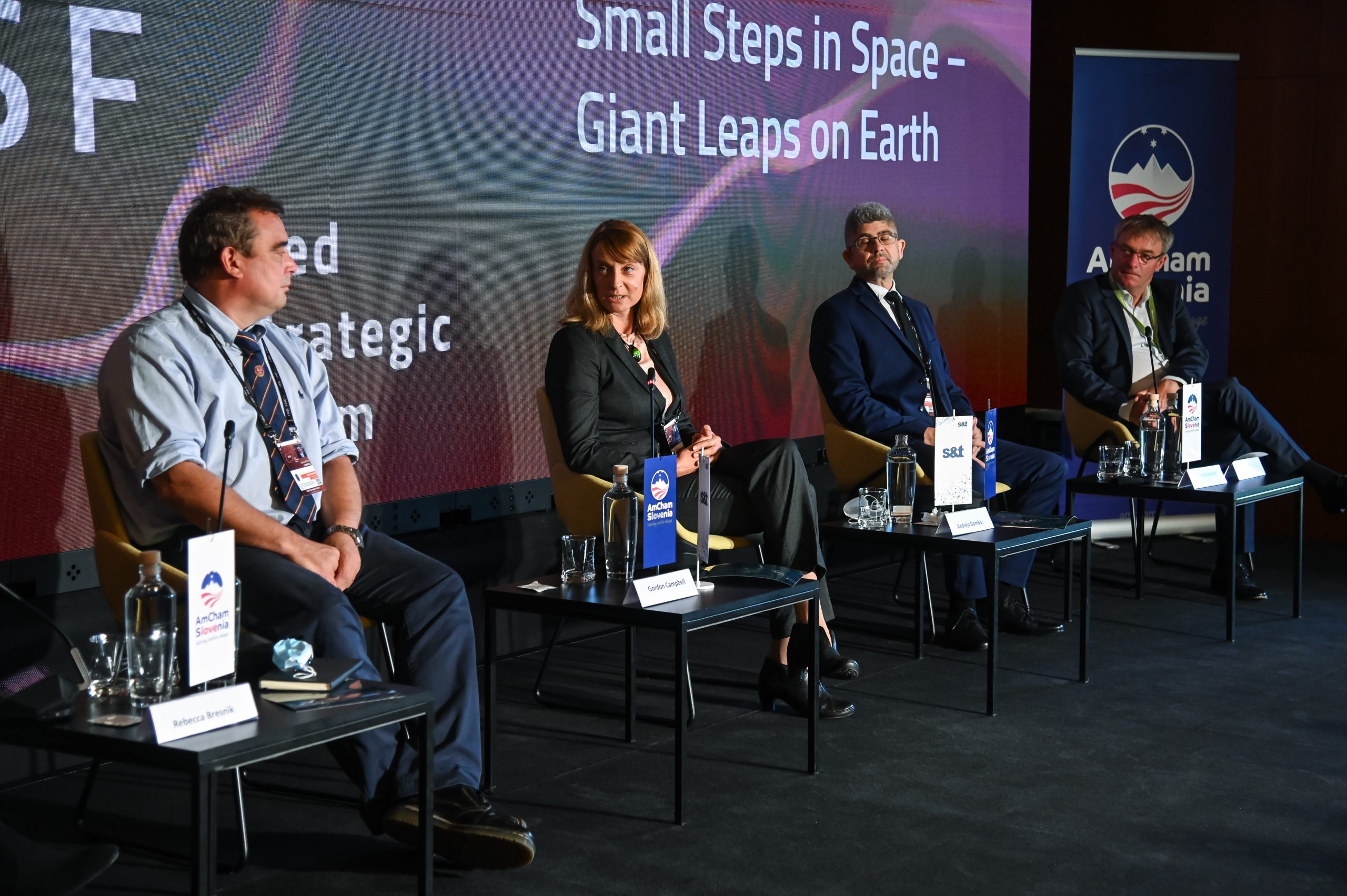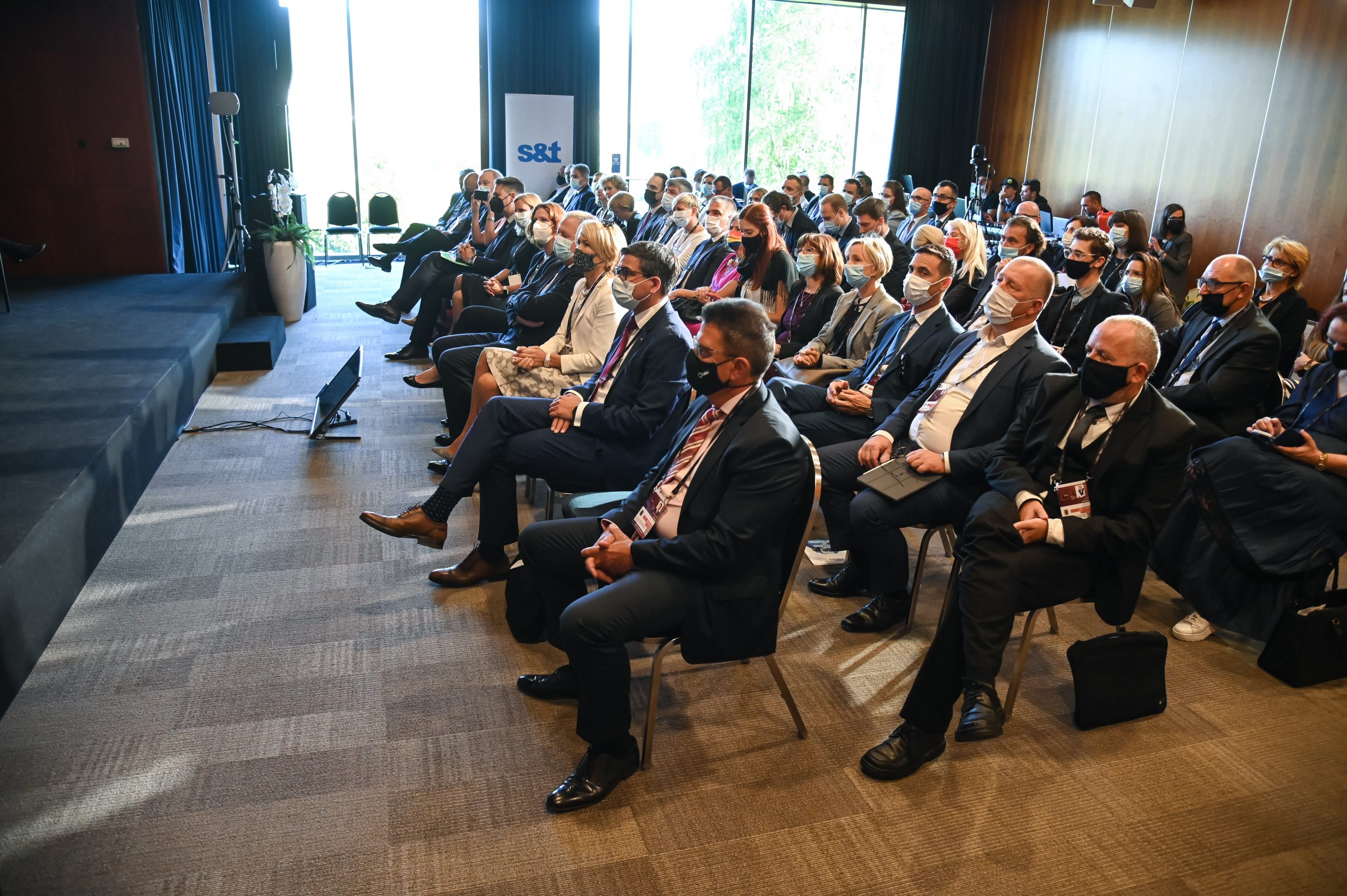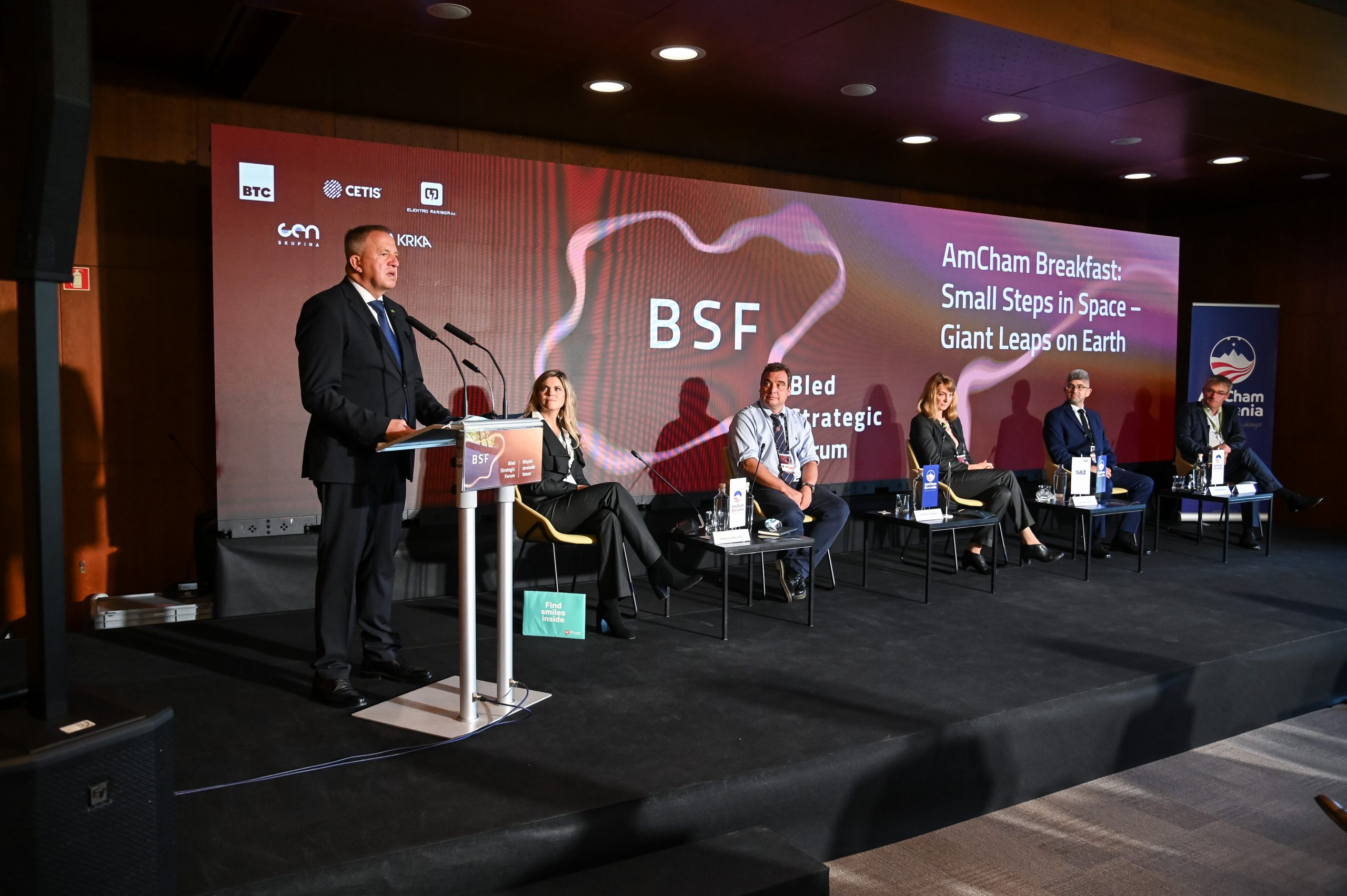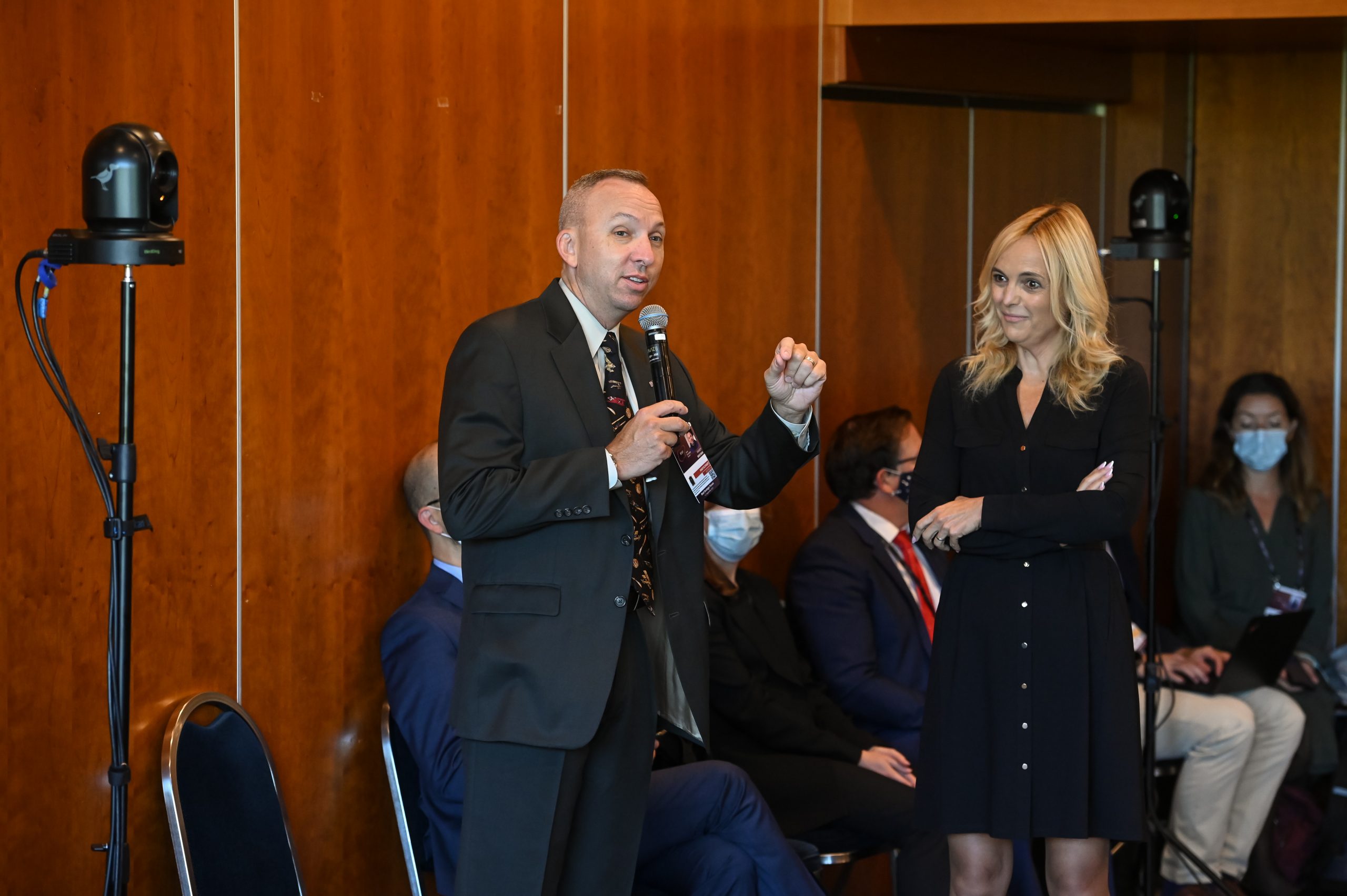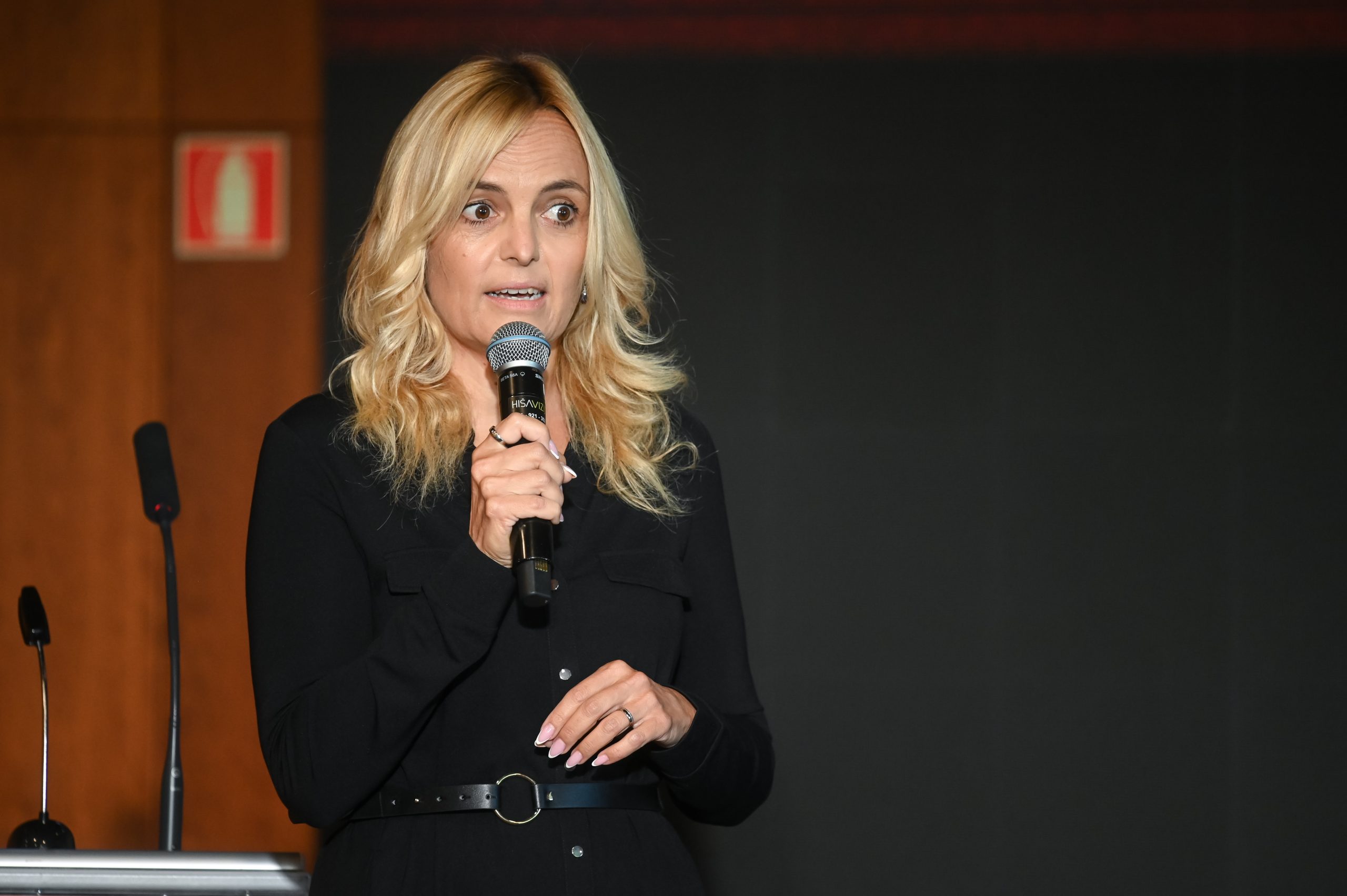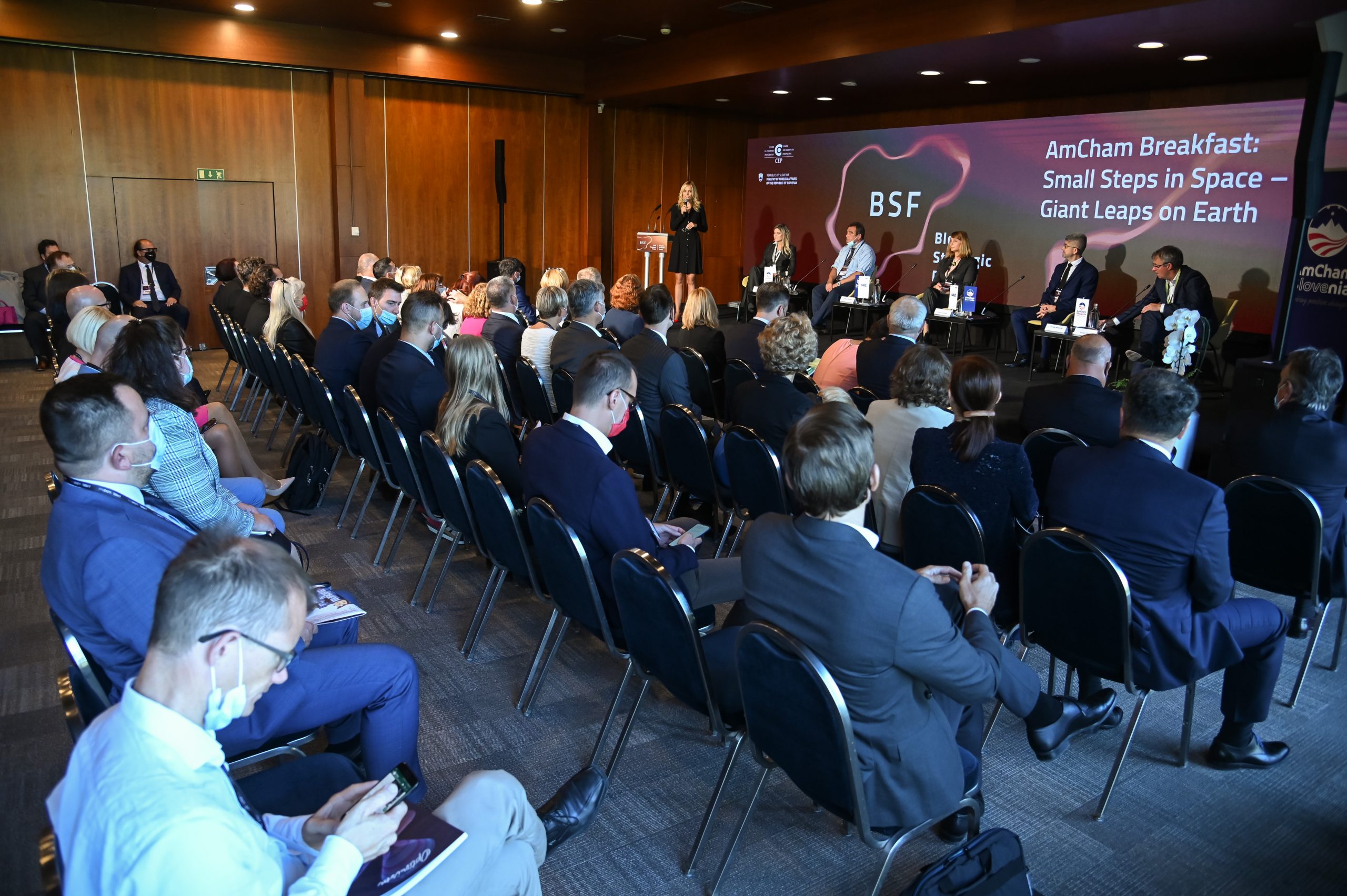There are major untapped economic opportunities in space including potential solutions for progress and higher sustainability on Earth, heard the debate at the AmCham Business Leaders Breakfast that was held as part of the Bled Strategic Forum. The participants talked space technologies, cooperation and the future of space exploration.
The debate, dubbed Small Steps in Space – Giant Leaps on Earth, featured, among others, Economy Minister Zdravko Počivalšek, who in his opening address said space was an attractive topic at the moment as it opened up new business opportunities for companies of various sizes from practically all sectors. Space technologies can play an important role in stepping economic growth and the green and digital transitions, he added, lauding Slovenia’s space-related projects. In the past five years, there have been 48 of them. The state has chipped in with some EUR 12 million, he said, noting that Slovenia has been a member of the European Space Agency since 2016.
Gordon Campbell of the ESA Earth Observation Programme Directorate said the EU had key experts and technologies in this area with the latter being used also in the US.
Rebecca Bresnik, aide to the chief advisor for international affairs at NASA’s Johnson Space Center, highlighted cooperation took precedence over competition, adding that the US did use a lot of technologies developed in other countries.
Tomaž Rotovnik, CEO of Skylabs, a company which developed the nanosatellite Trisat alongside the Maribor Faculty of Electrical Engineering and Computer Science, said that merely ten years ago there was no space technology in Slovenia, noting that one should start small before taking on larger projects.
Investment in space technology is investment in the future, noted Dušan Olaj, director of company Duol. Mars will be a destination sooner or later, he said, adding that solving such puzzles will make life easier. The future of space exploration is building a Moon base as well as exploring Mars and marketing commercial space travel, heard the debate.
Andreja Gomboc of the Nova Gorica Center for Astrophysics and Cosmology is not sure when life on Mars will be attainable, but she warned that this was not a planet B option. She is worried what an increase in demand for space tourism could mean for Earth or climate change.
The participants also discussed the need for international agreements or legislation on further space exploration, including in pollution, cooperation and space construction.
More on our Slovenian site.
Source: STA


